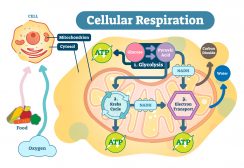Definition
noun, plural: aqueous solutions
A solution wherein water is the dissolving medium or solvent
Supplement
Solution, by definition, is a type of homogenous mixture in which the particles of one or more substances are distributed uniformly throughout another substance. It is comprised basically of a dissolving agent called solvent and the dissolving material called the solute. An aqueous solution is a type of solution wherein the solvent (dissolving medium) is water. Water is considered as the universal solvent. It is because of its capability to dissolve a variety of solutes.
Aqueous solutions are essential in medicine since they are intended for use in intravenous administration. Examples are lime water, rose water, saline solutions, etc. For instance, the table salt or sodium chloride (NaCl) is dissolved in water to form a saline solution and is represented by appending (aq) to imply that the NaCl is in aqueous form.
Word origin: Latin aqua (water) + solutus (dissolved)
See also:
Mentioned in:







